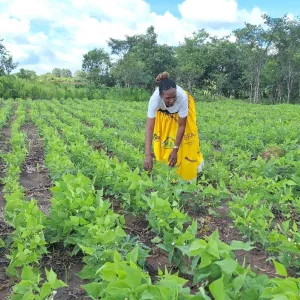Sow, grow, and thrive: a pathway to improve cassava farming in Zambia
For decades, women farmers like Maureen Bwalya from the Musa camp in Kasama district of northern Zambia, have upheld the tradition of cultivating cassava on ridges. These small piles of soil created by hand hoes, 30-50 cm tall and 50 cm wide are intended to reduce water logging and facilitate cassava growth. But forming row after row takes a

Sow, grow, and thrive: a pathway to improve cassava farming in Zambia
For decades, women farmers like Maureen Bwalya from the Musa camp in Kasama district of northern Zambia, have upheld the tradition of cultivating cassava on ridges. These small piles of soil created by hand hoes, 30-50 cm tall and 50 cm wide are intended to reduce water logging and facilitate cassava growth. But forming row after row takes a significant amount of physical labor. Establishing ridges follows a traditional practice known as chitemene, a Bemba word which means “place where branches have been cut for a garden.”
Chitemene, a slash and burn technique once common in Zambia, involves cutting down standing trees in the Miombo woodlands, stacking the logs, and then burning them to create a thick layer of ash believed to enhance soil fertility. The ashen fields are initially cultivated with pearl millet and followed by crops like cassava. As years progressed, this method has been associated with adverse environmental impacts disrupting the ecosystem balance due to increasingly shortened fallow and recovery periods. However, with the ever-changing climate, Bwalya and other farmers recognize the need for sustainable practices that require less labor.

